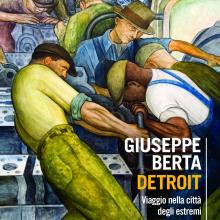CfA: Two doctoral research positions. “Radical Utopian Communities: Global Histories from the Margins, 1900-1950”
L'Uruguay et le plan Condor. Nouvelles perspectives de recherche
Les Journées d’études internationales L’Uruguay et le Plan Condor sont les premières journées du réseau de recherches URUCONDOR.
CfP: Les collections patrimoniales ont-elles un avenir ?
Cet appel à proposition d’articles pour un numéro thématique de la revue Culture & Musées intitulé « Les collections patrimoniales ont-elles un avenir ? » est sous la direction de Daniel Jacobi, Avignon Université.
CfA: Provostial Research Scholars in Institutional Histories, Slavery, and Colonialism
Call for Applications:
Provostial Research Scholars in Institutional Histories, Slavery, and Colonialism
Founded in 1821 McGill University is home to exceptional students, faculty, and staff from across Canada and around the world. Our University is also the site of world-class research in a range of disciplines. As it enters its third century, McGill seeks to undertake a rigorous and thorough self-examination of two particular questions of critical importance to understanding its past, and guiding future directions:
CfP: Prisoners of War. Russian and Soviet Experiences in the 20th Century
War captivity was an important experience for military personnel in the Tsarist Empire and the Soviet Union, affecting several million people (not only, but predominantly male). Conceptions of war captivity were often passed on from fathers to sons. Although the conditions in the various wars undoubtedly differed, as is well documented in research, there were also connecting experiences shared by the soldiers and officers captured in war. The conference aims at tracing this overarching experience of captivity and its significance for Russian and Soviet history in the 20th century.
CfP: Globalizing Eastern Europe – New Perspectives on Transregional Entanglements of an often Neglected Region
The Leibniz ScienceCampus „Eastern Europe – Global Area“ (EEGA) is calling for paper proposals for its panel "Globalizing Eastern Europe – New Perspectives on Transregional Entanglements of an often Neglected Region at the Sixth European Congress on World and Global History “Minorities, Cultures of Integration, and Patterns of Exclusion” in Turku, 25 June — 28 June 2020.
Presentazione del volume “Detroit. Viaggio nella città degli estremi”
Martedì 19 novembre 2019 ore 18,00
Casa della cultura Via Borgogna 3, Milano
Fondazione ISEC e Casa della Cultura sono liete di invitarvi alla presentazione del volume di Giuseppe Berta: Detroit. Viaggio nella città degli estremi (Bologna, il Mulino, 2019).
Introduce e modera:
• Ferruccio Capelli, Casa della cultura
Intervengono:
• Matteo Bolocan, Politecnico di Milano
• Aldo Bonomi, Consorzio Aaster
• Roberta Garruccio, Università degli studi di Milano
Sarà presente l’autore.
X Jornadas Vida y obra de Manuel Azaña
El Foro del Henares promueve, un año más, las jornadas sobre la vida y obra del político, escritor y periodista Manuel Azaña, que ocupó, entre otras responsabilidades, la presidencia de la República entre 1936 y 1939. Este año el décimo encuentro de estas características tendrá lugar entre el 19 y el 24 de noviembre bajo el título “Manuel Azaña, la religión y la iglesia”.

